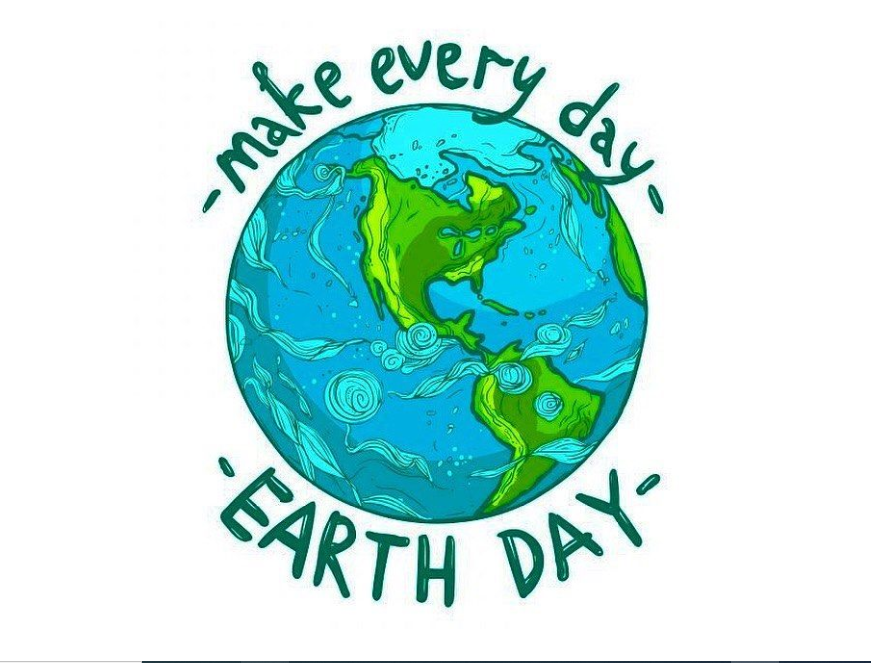Earth Day is upon us, that moment when we take an extra step back to survey our impact on the environment. And in 2020, the view looks rather different: Global carbon emissions have plunged since the beginning of March. According to The Guardian, Delhi, India, the world’s most polluted city, has been enjoying some of the freshest air in decades, thanks to shelter-in-place rules. Closer to home, NASA reports that air pollution in the American Northeast is down 30 percent. As humanity slows its manic drive to move and manufacture, planetary health is enjoying the benefits. 
This goes far beyond clear skies. A study just published by the journal Science of the Total Environment reports that nearly 80 percent of COVID-19-related deaths have occurred in areas with a high concentration of nitrogen dioxide, a pollutant generated by diesel engines. Other studies have also shown this correlation, and still more have linked the chemical to lung disease. That those whose immune and respiratory systems have already been compromised will be more vulnerable should come as no surprise, regardless of where scientific consensus lands on the study. Such data echoes the growing realization that our bodily health is intimately bound up with the living cycles around us.
Now, our new wariness of contagion comes with a new awareness of the consequences of everyday behavior. We’re training ourselves to resist that impulse to congregate; we’re thinking in terms of priorities: “Do I really need this?” Given a good century of being told that we should always want — and get — more, such a question seems downright un-American.
And yet our sense of the commonwealth is very much engaged. We think of others, and we make do with less. We make (or should make) the extra effort of reaching out to those most vulnerable in their isolation. To sociologist Eric Klinenberg, writing in The New York Times, there’s a revived sense of solidarity at work, that “motivates us to promote public health, not just our own personal security. It keeps us from hoarding medicine, toughing out a cold in the workplace, or sending a sick child to school.” That’s why we should distinguish between physical distancing and social solidarity, writes Klinenberg. The latter is something we’ll rely on more and more in the years of climate change to come.
Speaking further on the topic with Ezra Klein, Klinenberg notes that these are the very skills we’ll need to hone if we’re to prepare for the present and future world of catastrophic climate change. “When we get to the other side of the pandemic, and the health crisis abates, how do we think about rebuilding and investing in each other?
“What we are seeing in coronavirus in a very fast time frame is just how difficult and expensive, in terms of money, in terms of human lives, it is to wait and deny and deflect and spin, until the thing is right here. And in that sense, I just don’t see how we avoid a confrontation with the big looming threat that is there for all of us after the coronavirus situation abates, and that’s global warming.”
Indeed, what we are living through today is a kind of dress rehearsal for climate change’s emerging world of drought, flooding, famine, and refugees, with all of the public health challenges those imply. Like the coronavirus, the politics of global warming demand that we rally around an amorphous, ever-evolving threat that plays itself out over long stretches of time — for coronavirus, over months or years; for global warming, over decades. Both demand that we embrace scientific literacy, grapple with global forces impacting our lives and, most importantly, face up to our need for solidarity and social support networks like never before.
This need not be “welfare,” even if the public welfare is prioritized. The Green New Deal has plenty to say about creating new jobs. Crucially, it also embodies a profound sense of solidarity in its very tenets, a solidarity that we must embrace in spirit as well as in policy and funding. Combining a Works Progress Administration-like sense of mutual aid and support with policies that unflinchingly address the connection between human and environmental health, the Green New Deal is exactly what we need in this moment.
With our very lives at stake in the face of COVID-19, we are seeing the unavoidable need for large-scale public health coordination and social solidarity, not to mention the positive environmental impact of simply changing our behavior, of weighing our priorities. On this first Earth Day of a new decade and a new era, let’s learn what we can from this and ready ourselves for the long game.
Alex Greene is the Flyer‘s music editor.